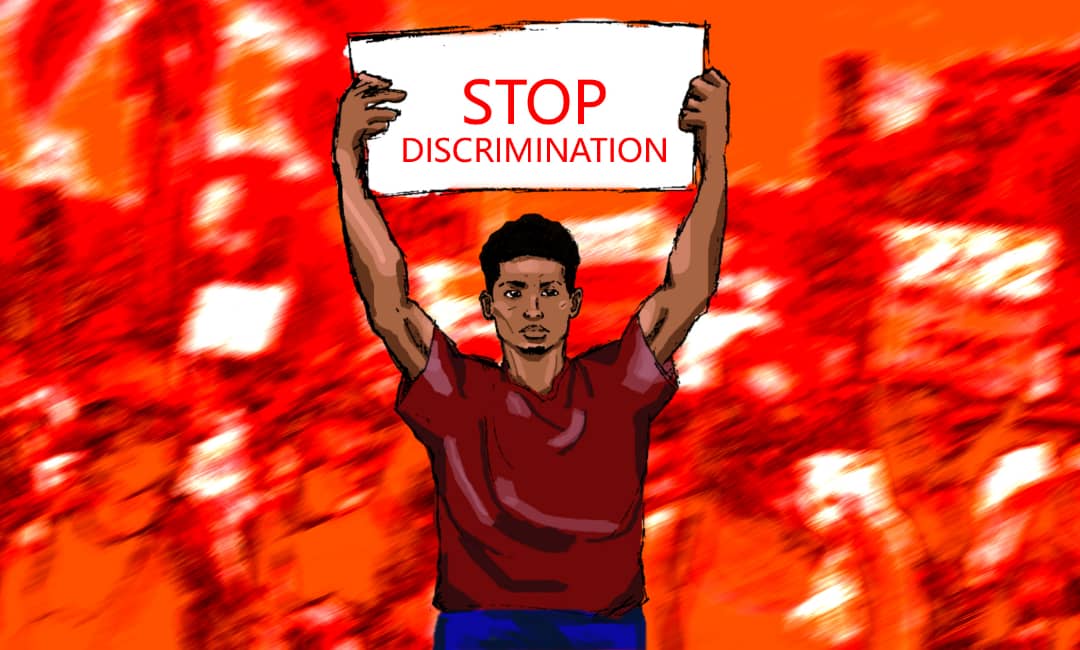Happy zero discrimination day!
If discrimination was a crime, we would take this day seriously. Looking at the definition from Oxford Languages, discrimination is “an unjust or prejudicial treatment of different categories of people, especially on the grounds of race, age, sex, or disability.”
Discrimination is viewed as terrible when you view it from an angle of stigmatization or selective preferential treatment. However, these are not the only forms of discrimination. Most people – if not all – are guilty of discrimination in one way or the other.
If discrimination was a crime, everyone would have served one or several jailed terms as we have all in one way or another committed this posed crime. Herein lies the purpose of this article.
People who suffer discrimination vs people who discriminate
Discrimination has different stages, but just as there is no little sin, there is also no little discrimination. The irony of this is that if there are 70 cases of discrimination, it is very likely that the same number of people who have reported these cases could be equivalent to the number of people guilty of it.
For instance, if I have been discriminated against, I must have done the same to another person. This makes me both a culprit and a victim.
If discrimination was a crime, we would have been found guilty of committing it against people by these different categories.
- Size – big and small
- Age – younger and older
- Tribe – the battle for superiority never ends.
- Religion – treating people of other religions as irrelevant.
- Race – the nationality or ethnic background.
- Appearance – How attractive or unattractive a person is
- Physical disability – a deformity that can not be fixed
- Mental health – cerebral deformity
- Knowledge- How smart or dull a person is.
- Height – short and tall
- Health status – an abnormal health condition
- Financial status – how rich or poor is
- Background – a person’s life profile or history
- Educational status – how formally enlightened or not a person is
- Dress sense – the kinds of clothes a person wears and how expensive they are
- Corporate level – the level a person occupies in the corporate world and this reads from employer to employee relationships, senior colleague to a lesser colleague
- Inter family discrimination – between families (parents having favourites amongst children and not taken proper care of non-blood relations).
- Discrimination amongst siblings – siblings preferring some siblings to other siblings and siblings treating other siblings as inferior.
- Between professionals – people in some professions feel more inferior than others. Examples are soldiers, bankers, lawyers, doctors, and others. This importance started with older parents’ ideologies which lead them to impose careers on children.
- Social status – this deals with differentiation by class.
- Personal superiority – as good as self-love, there is a thin line between self-love and discrimination against others.
- Discrimination between schools – an idea that one school is better than another.
When discrimination gets bad
There are always consequences to this act. Discrimination is a menace that has eaten deep and has claimed many lives. It has led people to take extreme measures that could be harmful to them in the end.
Also, on the very extreme side, victims make suicidal attempts. So, next time you think of committing prejudice or differentiation, know that you could be attempting order.
If I am physically unattractive and I face differentiation from other people, I could go as far as going under the knife to get the desired look. What happens when I can not help the situation?
Interestingly, when affected persons in each of these categories complain, they are found guilty of exhibiting the same to victims of other categories. I guess this is why it is hardly regarded as a crime. It is possible that whoever pronounces the decree will be found guilty of committing the same in no time.








